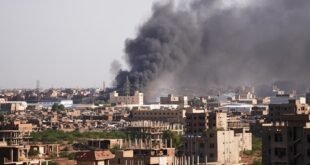10-10-2025
NEW DELHI/ KISHA NGAN, KATIHAR: More than a decade ago, when Mukhtar Alam studied at a government school in Kishanganj, the only Muslim-majority district in eastern India’s Bihar state, he had Hindu friends.
 Alam was especially close to one of them. The two would do their studies and school projects together. Alam would avoid meat when they ate together so as not to make his vegetarian friend uncomfortable but an incident two years ago created a rift in their friendship, which has not been bridged since.
Alam was especially close to one of them. The two would do their studies and school projects together. Alam would avoid meat when they ate together so as not to make his vegetarian friend uncomfortable but an incident two years ago created a rift in their friendship, which has not been bridged since.
Addressing a rally in Kishanganj, Jitanram Manjhi, a former chief minister of Bihar and a prominent ally of Prime Minister Narendra Modi’s Bharatiya Janata Party (BJP), said the Shershahbadi community of Muslims were “infiltrators” from Bangladesh, India’s neighbor in the east, where more than 91 percent of the population is Muslim and mainly speaks Bangla.
The term Shershahbadi is derived from the historical Shershahbad region, which includes areas in the neighboring West Bengal state. The name Shershahbad, in turn, is believed to be derived from Sher Shah Suri, an Afghan king who defeated the mighty Mughals and briefly ruled over the modern regions of Bihar and Bengal (including Bangladesh) in the 16th century.
Unlike Hindi and its dialects, as well as Urdu, spoken widely across Bihar, the Shershahbadi Muslims speak a dialect of Bangla mixed with Urdu and Hindi words. They are often referred to as “Badia” (a likely short form of Shershahbadi) or “Bhatia”, which derives its origin from the local dialect “Bhato”, meaning going against the river’s stream, since the Shershahbadi Muslims are said to have migrated upstream of the Ganges River from Malda to Murshidabad in West Bengal state, and finally to the Seemanchal region in Bihar, India’s most impoverished state.
“We felt threatened (by Manjhi’s speech),” Alam, a Shershahbadi Muslim and graduate in business administration, told media.
Refusing to stay silent, he posted his condemnation on Facebook. Within minutes, a comment in Hindi popped up under his post: “You people are Bangladeshi infiltrators.”
“Reading that comment sent a shiver down my spine,” recalled the 30-year-old Alam, sitting under the thatched roof of a primary school he runs. “The comment created a rift between us. We developed trust issues and lost our brotherhood, our friendship.”
Alam is one of 1.3 million Shershahbadi Muslims in Bihar, according to a “caste census” published by the state government in 2023, and most of them live in Kishanganj and Katihar districts.
As Bihar, India’s third-most populous state, heads towards crucial elections to its legislature that could impact national politics, it is these districts that have emerged as the focus of a high-pitched BJP campaign against supposed “Bangladeshi infiltrators”. Bihar will hold its state assembly election in two phases on November 6 and November 11, with the results to be announced on November 14.
Why Shershahbadi Muslims?
As India celebrated its Independence Day on August 15, Prime Minister Modi addressed the nation from the ramparts of the Mughal-era Red Fort in New Delhi, in which he announced the formation of a “high-powered demography mission” to find the infiltrators.
“No country can hand itself over to infiltrators. No nation in the world does so how then can we allow India to do so?” Modi said, without specifying who those infiltrators were. He added that through the mission, “the severe crisis now looming” over the country will be addressed in a “deliberate and time-bound manner”. His government has not yet provided details on the workings of the mission. (BBC)
 Pressmediaofindia
Pressmediaofindia





